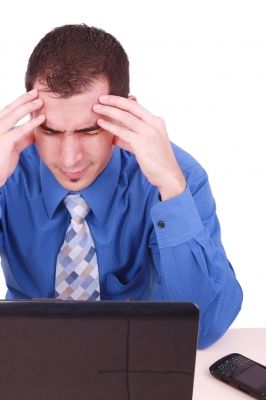Friends
The Real Reason Using Facebook Makes You Feel Bad
It's what you do on Facebook that matters.
Posted December 3, 2015

A variety of studies have indicated that using Facebook can damage people’s mood and emotional well-being, making them feel more depressed and/or lonely (e.g., Why Rejection on Facebook Hurts as Much as in Real Life). These findings raise two questions:
1. Why does using Facebook make some people experience a drop in emotional well-being?
2. What can Facebook users do to avoid feeling bad?
A new study in The Journal of Experimental Psychology seems to have found answers to both these questions.
Researchers instructed 84 undergraduate participants to use Facebook in one of two ways for 10 minutes. One group was instructed to use Facebook actively. Active usage includes direct exchanges with others such as posting or sharing updates and links, and responding to or commenting on friends’ posts or private messages. The second group was instructed to use Facebook passively: Passive usage includes consuming information but without direct exchanges such as, reading News Feeds, looking at their friends’ updates and pictures, or scrolling through fan pages. Active users were told to avoid passive use and passive users to avoid active use.
The researchers found that passive Facebook users felt significantly worse emotionally at the end of the day while active Facebook users did not. They also discovered why this happens—envy.
The researchers noted that people on Facebook tend to portray themselves in flattering ways and post far more positive and happy updates and pictures than negative ones, creating a very skewed picture of their lives. Indeed, while 52% of participants indicated they use Facebook to share good things with friends, only 7% said they use Facebook to share bad developments.
The seemingly charmed lives everyone seems to be portraying can make passive Facebook users feel their lives do not measure up by comparison, thus causing envy which is known to elicit drops in emotional well-being.
Therefore, Facebook users should be advised to exercise caution when using Facebook by following these three guidelines.
How to Use Facebook in an Emotionally Healthy Way
1. When using Facebook, make sure to balance passive scrolling with active usage such as posting or responding to your friends.
2. Avoid using Facebook passively when you feel depressed, low, or lonely, as passive usage is likely to make you feel worse.
3. There is a growing body of research indicating that Facebook usage can have addictive qualities, which might explain why people continue to use Facebook even when it makes them feel bad. If you feel you might be too ‘attached’ to your Facebook page, consider taking a break from Facebook for a week and see if your mood increases. Do stay in touch with people in your life but do so using other means such as email, text, or maybe even speaking with them on the phone or meeting face-to-face.
For a book full of practical and science based techniques to enhance your emotional health, check out Emotional First Aid: Healing Rejection, Guilt, Failure and Other Everyday Hurts (Plume, 2014).
Watch my TED Talk and learn how to boost your emotional strength.
Also, join my email list
Visit my website at guywinch.com and follow me on Twitter @GuyWinch
Copyright 2015 Guy Winch
Images by freedigitalphotos.net


